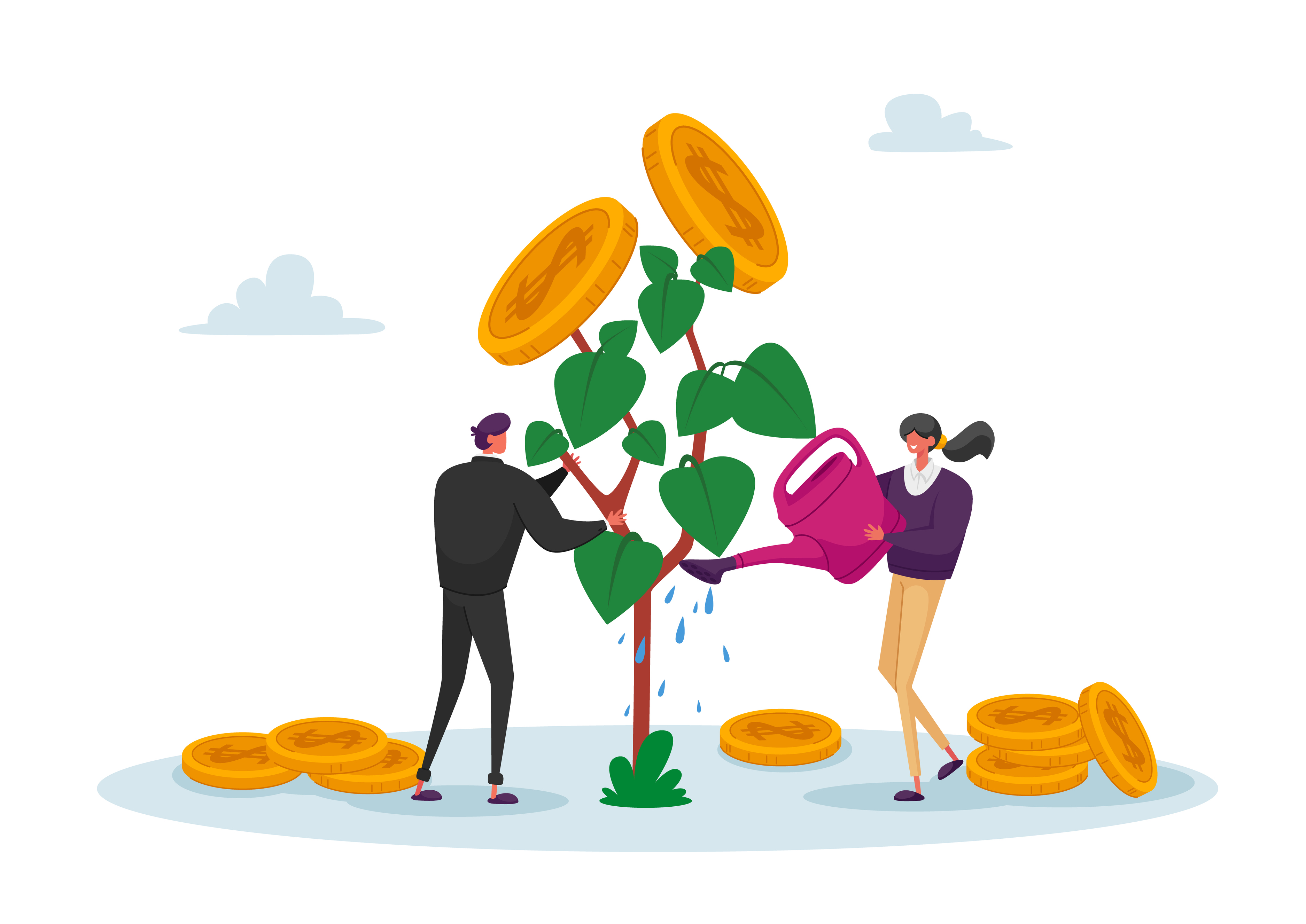Business leaders must do what they can to avoid unsustainable business practices by pursuing sustainable business growth. It’s long been the idea that all stakeholders—individuals, businesses, and governments—must work together to combat climate change. After all, it’s our planet, and we are all responsible for it.
Recently, however, it’s become clear that businesses, especially big ones, must carry the bulk of the responsibility. In fact, just 100 companies are responsible for 71% of global emissions.
This doesn’t mean that individuals and governments don’t have a role to play. Lawmakers must work with business owners and climate experts in order to create regulations that encourage economic growth while achieving climate goals. Individuals, meanwhile, can do their part by voting with their dollar: supporting sustainable businesses and avoiding companies that are harmful to the planet.
Unfortunately, finding truly sustainable businesses to support isn’t simple. In a world filled with greenwashing, it’s hard to tell when a business is genuinely pursuing environmental targets and when it’s simply towing the party line to cater to its customer base. However, there are a few key things to look for when determining if a business is truly sustainable.
Understanding sustainable business practices
Sustainability in business refers to a company’s social and environmental impact on the planet. A company that’s concerned with sustainable business growth should be actively working toward targets that will minimize its environmental impact while providing support to workers both within the company and along its supply chain. This can be achieved by following sustainable business practices.
Modern businesses must follow the Triple Bottom Line: people, planet, and profit. The success of a company is no longer measured by how much money they make but also by how much of an impact they have.
Although the idea of Corporate Social Responsibility—a company’s responsibility for its social and environmental impact—is not a new one, it has grown to be a requirement. Consumers want to support companies that align with their values, and regulatory powers recognize the unique impact that companies have. Whether business owners want to or not, customer demand and regulations are forcing companies to be sustainable.
This shift can be seen through the changes that companies are making. According to Accenture, about one-third of Europe’s largest companies have targets to reach net-zero carbon by 2050. Additionally, around 4,500 companies have B-Corp Certification, which is the highest standard for sustainability currently available.
But, just because a company knows that sustainability is important doesn’t mean that its standards are where they should be. According to Forbes, even though 90% of company leaders believe that sustainability is important, only around 60% of companies have a strategy in place. And, this study found that only around 22% of corporations have specific strategies to achieve the UN’s Sustainable Development Goals, and a measly 0.2% of companies have developed tools to evaluate progress on these initiatives.
If we, as a global community, are to reach the minimum targets that climate experts have put forth, companies need to commit to much more. As consumers, we need to encourage sustainable business by supporting companies that are truly making a difference and avoiding those that are not.
Are there levels of sustainability?
Sustainability is broken into three levels: the environment, the people, and the economy. Let’s take a look at some key indicators in each area that can help consumers ascertain whether the businesses they support are truly making a difference.
Environmental indicators of sustainable businesses
Companies that truly care about their environmental impact will have developed measurable strategies to minimize their greatest areas of influence. For example, a sustainable jewelry brand might find ethical mines to support or choose to use recycled materials in order to reduce impacts associated with the mining industry.
Some measurable ways that sustainable businesses can reduce their impact are through:
- Carbon footprint reduction. This can be achieved by first reducing carbon emissions as much as possible, then investing in carbon offsetting services, or offering ways for customers to take responsibility for their footprint through carbon-neutral shipping.
- Energy efficiency initiatives. This might include the use of renewable energy, using energy-efficient lightbulbs in the building, or generally reducing energy use overall. Not only is this good for the environment, but it can save a lot of money, too.
- Waste management strategies. These include supply chains. Waste should be minimized, and products at the end of their lifespan should be dealt with in a circular manner.
- Water conservation efforts. This is especially important for producers. During the production of materials, water should be conserved as much as possible, and water contamination must be avoided.
- Investing in regenerative sustainability. It’s not enough to minimize our impact now. We need to search for ways to take care of our future impact and ensure that our current actions don’t result in future degradation.
Social indicators of sustainable businesses
Sustainability isn’t just about the planet. It’s also about supporting the people involved with a company, whether internally or as part of a supply chain. Companies need to do their part by taking care of their employees and ensuring that their products and materials are ethically sourced. They also have a responsibility to the communities in which they work; if they own a factory in an underserved community, they must ensure that they are supporting the community and that their presence brings support rather than a negative impact.
Some social indicators include:
- Fairtrade and ethical sourcing. Although there are a few commodities that have gained recognition as needing to be fair trade—such as coffee and diamonds—all materials need to be ethically sourced. Consumers can look for third-party certification to ensure that supply chains are ethical.
- Employee well-being and development. Employees should be fairly compensated and enjoy benefits that allow them to lead happy, healthy lives.
- Diversity and inclusion policies. Companies need to enact inclusive recruitment policies and ensure that all employees have an equal opportunity to succeed within the company.
Economic indicators of sustainable businesses
Of course, profit remains a key indicator of a successful business. In order to continue to support its sustainability goals for business, it must grow financially. Although these considerations are more important to investors rather than consumers, they are still important to consider. Economic indicators include:
- Long-term vision and planning. How profitable and impactful does the company plan on being in five years? Ten years? What are its goals?
- Financial transparency and accountability. Sustainable business operations should always be transparent, including with their finances. If a company is ambiguous about its finances, it’s a good indicator that there’s something fishy going on.
- Responsible supply chain management. Supply chains should be short, and companies should know where their materials come from and how they are sourced. Ignorance is not an excuse.
Certifications and standards for sustainable businesses
Because most consumers are not sustainability experts, it’s impossible for the average person to ascertain on their own whether or not a company is truly sustainable. That’s where green certifications come in. Third-party certifications can help customers better understand how sustainable a company is, whether they support responsible supply chains and the thoroughness of their approach. Some key certifications include:
- LEED Certification for Green Buildings: Awarded to buildings that are energy efficient, safe for workers, has lower carbon emissions, and more.
- B Corp Certification for Social and Environmental Impact: The most comprehensive certification awarded to businesses that can showcase environmental responsibility, employee well-being, ethical sourcing, transparency, and more.
- Fairtrade Certification for Ethical Trade: This ensures ethical sourcing of materials and that supply chains are both socially responsible and environmentally friendly.
- Carbon offsetting standards: If a company offsets a portion of its carbon footprint, carbon projects must be certified by a reputable entity.
The role of consumers in supporting sustainable businesses
Ideally, businesses and governments would work together to create lasting, effective sustainable business approaches that ensure the longevity of our planet and continued economic success. Unfortunately, due to a myriad of challenges, we are not yet there. However, consumers can drive necessary changes by choosing to support companies with truly meaningful sustainability strategies.
Conscious consumerism is the practice of purchasing ethical products that you believe will result in a positive impact. However, the practice is a lot less simple than the definition. Companies are aware that consumers demand ethical and environmental practices, and unfortunately, some of them use this to their advantage. Many companies will greenwash—deliberately overplay their sustainability actions—in order to attract conscious customers. Because of this, consumers need to be more vigilant than ever before.
How can I determine if a business is truly sustainable?
- Check its certifications. Reputable third-party certifications are the best way to ascertain whether a company is truly sustainable or not. Trusted verifications will fully audit the company and its supply chains before providing their stamp of approval. If the company itself doesn’t have certifications, it should support certified supply chains instead.
- Look for transparency. Companies that prioritize sustainable business growth will have nothing to hide. When you visit their website, look for an impact or sustainability page. This should outline all of their current approaches, goals, and how they plan to expand their sustainability strategies in the future with traceable proof. The more information, the better.
- Seek comprehensive practices. Sustainability requires a thorough approach if any result is to be had. For example, if a company opts for plastic-free packaging but uses a supplier that uses plastic to send merchandise, then it’s not fully reducing its plastic footprint. Look out for companies that pay attention to the details. Even if it hasn’t yet reached its goals, it should have clear plans to do so in the future.
Can small businesses implement sustainable practices?
It’s true that most of the conversations surrounding sustainable business growth focus on big business. After all, they are the ones who have the most impact. Small businesses inherently have a smaller footprint due to their size. However, this does not mean that small businesses can’t implement sustainable practices. In fact, they should.
Small business sustainability is important for a number of reasons.
- Regulations will eventually necessitate such practices, so it’s good to get ahead of them.
- Consumers demand sustainability, even among small businesses.
- Sustainable practices ultimately save money, even if there’s an upfront cost. Energy efficiency, for example, helps the planet while saving your energy bill.
- It’s the right thing to do.
Challenges and opportunities in the journey toward sustainability
The transition to sustainable practices isn’t always an easy one. Although sustainable practices often save money in the long run, it requires an upfront investment. Certifications, for example, can be expensive on their own, not to mention the costs associated with reaching compliance. Furthermore, it takes a lot of time and often outside consultation in order to integrate sustainable practices into existing businesses. The challenges can often feel insurmountable.
However, it is possible. Business owners and decision-makers simply need to take it step by step, and they’ll soon find themselves on their way toward sustainable business growth and practices.
The first step to driving sustainable business growth is understanding the size of your carbon footprint and learning more about how to calculate your carbon footprint with EcoCart. To start offsetting your brand’s carbon footprint request a demo today.





